A security deposit is a sum of money provided by the tenant to the landlord at the beginning of a lease. It acts as financial security against potential damage to the rental property, unpaid rent, or other lease violations. For landlords in Florida, understanding the legal obligations surrounding security deposits is essential to avoid disputes and comply with state regulations. This financial tool serves as a critical safeguard for property owners and offers tenants peace of mind regarding the terms of their rental agreement.
Why Security Deposits Are Important
Security deposits play a dual role in the landlord-tenant relationship. For landlords, they provide a safety net to cover costs that may arise from tenant negligence or breach of contract. These costs might include repair expenses for property damage beyond normal wear and tear, cleaning fees, or unpaid utility bills. For tenants, a security deposit is a commitment to treat the rental property with care and adhere to lease terms. Mismanagement of security deposits, however, can lead to misunderstandings and even legal disputes, emphasizing the need for landlords to follow established guidelines.
Florida law strictly governs the handling of security deposits to protect both landlords and tenants. By adhering to these laws, landlords can foster trust and ensure smooth transactions throughout the leasing period. Furthermore, a clear understanding of these rules helps avoid costly litigation and promotes positive tenant relationships, enhancing the overall rental experience.
Legal Basis: Florida Statutes Section 83.49
The Florida Landlord-Tenant Act provides a comprehensive framework for managing security deposits. Under Section 83.49 of the Florida Statutes, landlords must adhere to specific procedures regarding the collection, holding, and return of security deposits. This statute aims to prevent misuse of tenant funds and ensure transparency in rental transactions.
Key Provisions of Section 83.49:
Notification Requirements: Landlords must notify tenants in writing within 30 days of receiving the security deposit. This notice should detail the type of account in which the deposit is held and the financial institution’s location. If the deposit is held in an interest-bearing account, the landlord must specify how and when the tenant will receive interest.
Approved Deposit Holding Methods:
A non-interest-bearing account in a Florida banking institution.
An interest-bearing account, with at least 75% of the interest payable to the tenant.
A surety bond posted in the county where the rental property is located, equal to the deposit amount.
Return of Deposit: Security deposits must be returned to tenants within 15 days of lease termination if no deductions are necessary. For deductions, landlords must provide written notice within 30 days, outlining the reasons and the remaining amount to be refunded.
Common Challenges Landlords Face
Landlords in Florida often encounter challenges when managing security deposits. Miscommunication or a lack of understanding of the law can result in disputes. Common issues include disagreements over damage assessments, delayed deposit returns, and failure to provide proper notification of deductions. These challenges highlight the importance of clear documentation and proactive communication.
Additionally, landlords who neglect to provide written notices or improperly handle security deposits risk legal consequences. Tenants may file claims against landlords for non-compliance, which can lead to financial penalties or damage to the landlord’s reputation.
Best Practices for Compliance
To minimize disputes and comply with Florida’s security deposit laws, landlords should adopt the following best practices:
Familiarize Yourself with the Law: Understand the specific requirements outlined in Florida Statutes Section 83.49. This knowledge is crucial for ensuring legal compliance and protecting your rights as a landlord.
Use a Standardized Lease Agreement: Clearly define security deposit terms in the lease agreement. Include details about the amount, purpose, and conditions for deductions.
Document Property Condition: Conduct a thorough inspection of the property before move-in and after move-out. Use detailed checklists and photographs to document the property’s condition, creating a clear record to support any deductions.
Provide Timely Notifications: Notify tenants in writing about the deposit’s location and account type within the required 30-day period. Ensure that any deductions are documented and communicated promptly.
Maintain Clear Records: Keep detailed records of all security deposit transactions, including bank statements, written notifications, and receipts for repairs or cleaning. This documentation is invaluable in resolving disputes and demonstrating compliance.
Real-Life Example
Consider a landlord who collects a $2,000 security deposit from a tenant and places it in a non-interest-bearing account. The landlord provides written notice of the account details within 30 days. At the end of the lease, the tenant moves out, leaving significant carpet stains and a broken window. The landlord documents the damages with photographs and receipts for repair costs totaling $500. Within 30 days, the landlord sends the tenant a written notice of the deductions, along with the remaining $1,500. By following these steps, the landlord complies with Florida law and avoids potential disputes.

Get a Free Rental Analysis
Want to know how much your home will rent for? We’ll send you a free rental report!
Collecting and Holding Security Deposits
The Process of Collecting Security Deposits
The collection of a security deposit is one of the initial steps in formalizing a landlord-tenant relationship. While it may seem straightforward, establishing a clear and lawful process for collecting security deposits is vital for avoiding misunderstandings and disputes.
Setting the Right Amount
In Florida, there is no state-mandated cap on the amount landlords can charge as a security deposit. However, landlords should exercise caution and consider market norms when determining the deposit amount. Overcharging may deter potential tenants, while undercharging could leave landlords financially vulnerable.
Factors to consider when setting the deposit amount include:
- Property Value: Higher-value properties may justify larger deposits to cover potential damage.
- Rental Market Trends: Research the average deposit amounts for similar properties in your area.
- Tenant Profile: For tenants with limited credit or rental history, a higher deposit might provide added security.
Transparency During the Application Process
Clearly communicate the security deposit requirements during the application process. This includes specifying:
- The amount of the deposit.
- The due date for payment (typically upon lease signing).
- Acceptable payment methods (e.g., check, money order, electronic transfer).
Provide tenants with written confirmation of the deposit amount and its purpose. This transparency sets the stage for a professional landlord-tenant relationship.
Where and How to Hold Security Deposits
Once collected, landlords must decide how to store the security deposit in compliance with Florida’s regulations under Section 83.49. Improper handling of funds can result in significant legal consequences, including financial penalties.
Approved Methods for Holding Deposits
Florida law provides landlords with three options for holding security deposits:
Non-Interest-Bearing Account:
- The deposit is placed in a separate, non-interest-bearing account at a Florida banking institution.
- This is the simplest method but provides no financial benefit to the tenant.
Interest-Bearing Account:
- Deposits are stored in an account that accrues interest.
- At least 75% of the interest earned must be paid to the tenant annually, or at lease termination.
- Landlords must specify how and when interest payments will be made.
Surety Bond:
- Instead of holding the deposit in a bank, landlords can post a surety bond in the same amount as the deposit with the clerk of the circuit court in the county where the property is located.
- This option requires landlords to pay 5% interest to the tenant annually.
Each method has its advantages and considerations, and landlords should select the one that best suits their circumstances and financial capabilities.
Bank Accounts and Compliance
When holding deposits in a bank account, landlords must:
- Ensure the account is separate from personal or business funds.
- Use a Florida-based banking institution.
- Provide tenants with written notice of the account details within 30 days of receiving the deposit. The notice must include:
- The bank’s name and address.
- Whether the account is interest-bearing or non-interest-bearing.
- The rate of interest (if applicable).
Failure to provide this notification can lead to legal action and forfeiture of the right to claim deductions from the deposit.
Common Challenges with Holding Security Deposits
Managing security deposits can be challenging, particularly for landlords unfamiliar with Florida’s laws. Some common issues include:
- Mixing Funds: Placing the deposit in a personal or business account violates legal requirements and exposes the landlord to financial liability.
- Missed Deadlines: Forgetting to notify tenants within the 30-day window can result in penalties and disputes.
- Lack of Documentation: Without clear records, landlords may struggle to prove compliance with deposit-holding requirements.
Best Practices for Holding Security Deposits
To streamline the process and ensure compliance, consider these best practices:
- Open a Dedicated Account: Establish a separate account specifically for security deposits to simplify record-keeping and maintain legal compliance.
- Automate Notifications: Use property management software or tools to generate and send account notification letters automatically within the required timeframe.
- Understand Your Options: Evaluate the benefits and drawbacks of the three approved holding methods. For instance, while a surety bond may offer flexibility, it requires annual interest payments to the tenant.
- Stay Organized: Keep detailed records of the deposit’s collection, storage, and any interest payments. This documentation will be invaluable in resolving disputes or undergoing audits.
Real-Life Scenario
Imagine a landlord who collects a $1,800 security deposit from a tenant. The landlord places the deposit in an interest-bearing account and sends the tenant a written notification within 30 days, specifying the account details and interest terms. At the end of the lease, the tenant receives a statement showing accrued interest along with the deposit refund. This approach demonstrates the landlord’s commitment to transparency and compliance, fostering trust and minimizing the risk of disputes.

Deductions and Returning Security Deposits
The Process of Returning Security Deposits
The return of a security deposit is one of the most crucial stages in the landlord-tenant relationship. Florida law mandates specific timelines and procedures to ensure transparency and fairness. Understanding and adhering to these requirements will help landlords avoid disputes and maintain a positive reputation.
Key Deadlines for Security Deposit Returns
Under Florida Statutes Section 83.49, landlords must adhere to the following timelines:
- No Deductions: If the landlord does not intend to make any deductions, the full deposit must be returned within 15 days after the tenant vacates the property.
- Deductions Made: If deductions are necessary, the landlord must provide written notice to the tenant within 30 days of lease termination. The notice must:
- State the specific reasons for the deductions.
- Include the remaining deposit amount to be refunded.
Failure to meet these deadlines can result in legal penalties. For example, if a landlord does not notify the tenant of deductions within 30 days, they forfeit the right to retain any portion of the deposit.
Proper Handling of Deductions
Landlords can only deduct from a security deposit for specific reasons outlined in the lease agreement and Florida law. These typically include:
- Unpaid rent or utilities.
- Damage to the property beyond normal wear and tear.
- Cleaning costs to restore the property to its original condition, provided it is stipulated in the lease.
Differentiating Normal Wear and Tear from Damage
One of the most common disputes arises from disagreements over what constitutes “normal wear and tear.” To avoid issues:
- Normal Wear and Tear: Includes minor scuffs on walls, faded paint, or worn carpets from everyday use.
- Excessive Damage: Includes broken appliances, large stains on carpets, holes in walls, or significant structural damage.
Documenting the property’s condition at move-in and move-out is crucial for justifying deductions.
Communicating with Tenants About Deductions
Transparency is critical when making deductions. The written notice provided to tenants must be clear, detailed, and accompanied by evidence.
Tips for Effective Communication:
- Provide Documentation: Include photos, videos, or repair receipts to support your claims.
- Be Specific: List each deduction, the reason, and the associated cost. For example:
- Carpet stain removal: $200
- Broken window replacement: $300
- Send via Certified Mail: To ensure compliance and maintain a record, send the notice via certified mail with a return receipt.
Handling Disputes
Despite your best efforts, tenants may dispute deductions. Be prepared to address these concerns professionally and within the bounds of the law.
Steps to Handle Disputes:
- Review the Lease Agreement: Ensure the deductions align with the terms agreed upon in the lease.
- Provide Additional Evidence: Share detailed records of the damages and associated repair costs.
- Offer Mediation: Suggest a neutral third party to mediate the dispute.
- Small Claims Court: If the dispute cannot be resolved amicably, you may need to pursue legal action. However, ensure your documentation and compliance are solid to support your case.
Best Practices for Deposit Returns
To streamline the return process and minimize disputes, landlords should implement these best practices:
- Conduct Thorough Inspections: Perform detailed move-in and move-out inspections using checklists and photographs.
- Maintain Open Communication: Keep tenants informed about potential deductions before providing the official notice.
- Be Prompt: Adhering to the required timelines demonstrates professionalism and reduces the likelihood of disputes.
- Document Everything: Keep records of inspections, repair receipts, and correspondence with tenants.
Real-Life Example
Consider a tenant who vacates a rental property after a one-year lease. During the final inspection, the landlord discovers a broken cabinet door and a stained carpet. The landlord:
- Documents the damages with photos.
- Obtains repair estimates totaling $400.
- Sends a written notice to the tenant within 30 days, detailing the deductions and including evidence.
- Refunds the remaining $1,600 from the $2,000 deposit.
By following these steps, the landlord ensures compliance with Florida law and avoids disputes.

Enhancing Your Security Deposit Management Practices
Security deposits are more than just a financial safeguard—they’re a cornerstone of the landlord-tenant relationship. By taking proactive steps to improve how you handle security deposits, you can ensure compliance with Florida law, minimize disputes, and create a positive rental experience for both parties.
Leveraging Technology for Security Deposit Management
Modern property management tools and software can help streamline the handling of security deposits while ensuring adherence to legal requirements. These solutions offer features like automated notifications, secure fund tracking, and documentation storage.
Benefits of Using Technology:
- Automated Compliance: Set reminders for key deadlines, such as notifying tenants of account details or sending deductions notices.
- Detailed Record Keeping: Store lease agreements, photos, and financial records in one place for easy access during disputes.
- Transparent Communication: Use tenant portals to share updates about security deposits, including receipts or status reports.
Popular tools like Buildium, AppFolio, and TurboTenant offer these capabilities, making them valuable investments for landlords managing multiple properties.
Establishing Clear Policies in Lease Agreements
One of the simplest ways to reduce confusion or disputes is by creating a detailed and transparent lease agreement. A clear lease ensures that both landlords and tenants understand the terms governing the security deposit.
Key Details to Include:
- Deposit Amount: Specify the exact amount of the security deposit and when it must be paid.
- Purpose of the Deposit: Outline what the deposit covers, such as damages, unpaid rent, or cleaning costs.
- Conditions for Deductions: Clearly state what constitutes normal wear and tear versus damage.
- Timeline for Return: Reiterate Florida’s deadlines for returning the deposit and issuing deductions notices.
- Dispute Resolution: Include steps for resolving disputes, such as mediation or small claims court.
Providing a written agreement not only meets legal requirements but also builds trust with tenants by ensuring transparency.
Educating Tenants About Their Responsibilities
A well-informed tenant is less likely to cause disputes over security deposits. Educating tenants about their responsibilities and expectations before they move in can prevent misunderstandings.
Strategies for Tenant Education:
- Move-In Orientation: Walk tenants through the property and discuss how to maintain it.
- Written Guides: Provide a handbook detailing tenant responsibilities for cleaning, maintenance, and avoiding damage.
- Regular Communication: Send periodic reminders about lease terms, such as proper disposal of trash or reporting repairs promptly.
Tenants who understand the consequences of damage or neglect are more likely to care for the property, reducing the likelihood of disputes at the end of the lease.
Building Positive Tenant Relationships
Strong landlord-tenant relationships can mitigate potential conflicts over security deposits. Open communication and mutual respect go a long way in fostering trust.
Best Practices for Building Relationships:
- Be Approachable: Encourage tenants to report issues or damages promptly without fear of immediate penalties.
- Address Concerns Quickly: Respond to maintenance requests and other tenant inquiries in a timely manner.
- Maintain Professionalism: Always communicate in a courteous and professional tone, especially during disputes.
Happy tenants are more likely to comply with lease terms and less likely to contest reasonable deductions.
Staying Updated on Legal Changes
Florida’s landlord-tenant laws may evolve, and staying informed about these changes is crucial for compliance. Regularly review updates to state statutes and consult legal experts or property management professionals to ensure you remain compliant.
How to Stay Informed:
- Join Local Associations: Organizations like the Florida Landlord Network offer resources and updates for property owners.
- Subscribe to Legal Newsletters: Many law firms provide free newsletters covering changes to landlord-tenant laws.
- Consult a Real Estate Attorney: Periodic consultations can clarify complex legal questions and keep you informed about new regulations.
Real-Life Example of Best Practices in Action
A landlord managing multiple properties in Palm Beach uses property management software to track security deposit deadlines and document tenant interactions. Before move-in, the landlord provides tenants with a handbook outlining maintenance expectations and conducts a detailed property walkthrough with photos.
When one tenant moves out, the landlord uses the software to access records and quickly calculates deductions for a broken appliance. The tenant receives a certified letter within 30 days, complete with photos and receipts. By following these practices, the landlord avoids disputes and fosters a professional reputation.
Final Thoughts
Security deposit management in Florida can seem complex, but with the right tools, policies, and approach, landlords can navigate these challenges with ease. By adhering to state laws, educating tenants, and leveraging modern solutions, you’ll create a seamless and professional process that protects your interests while fostering positive tenant relationships.
For more guidance on managing rental properties in Florida or other property management topics, feel free to ask.

